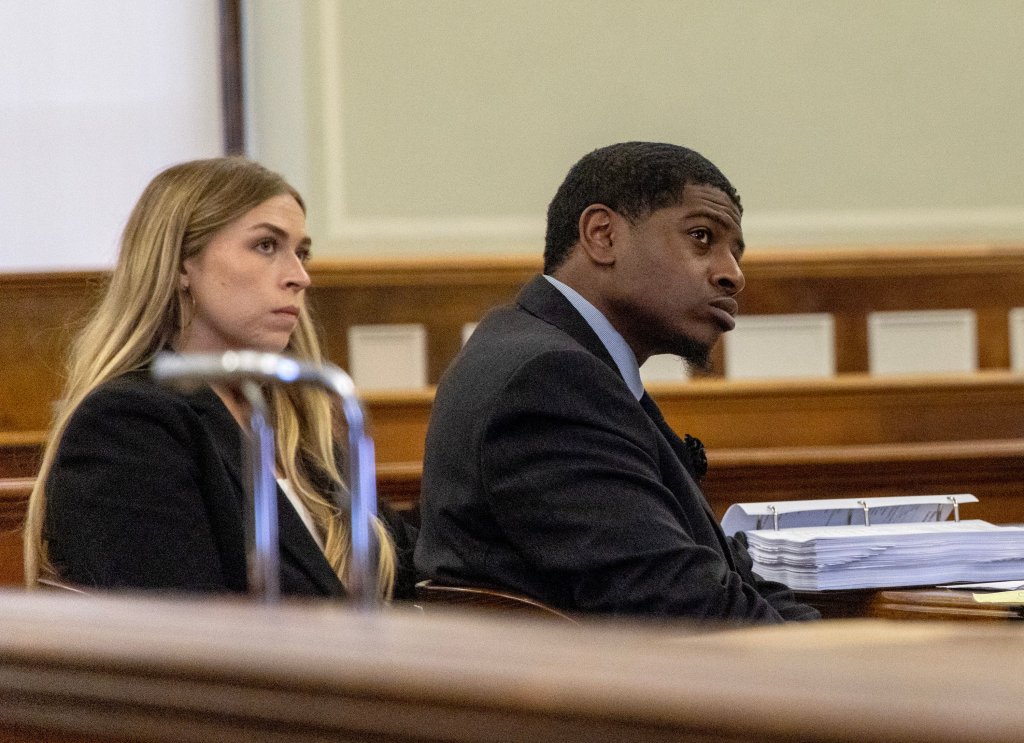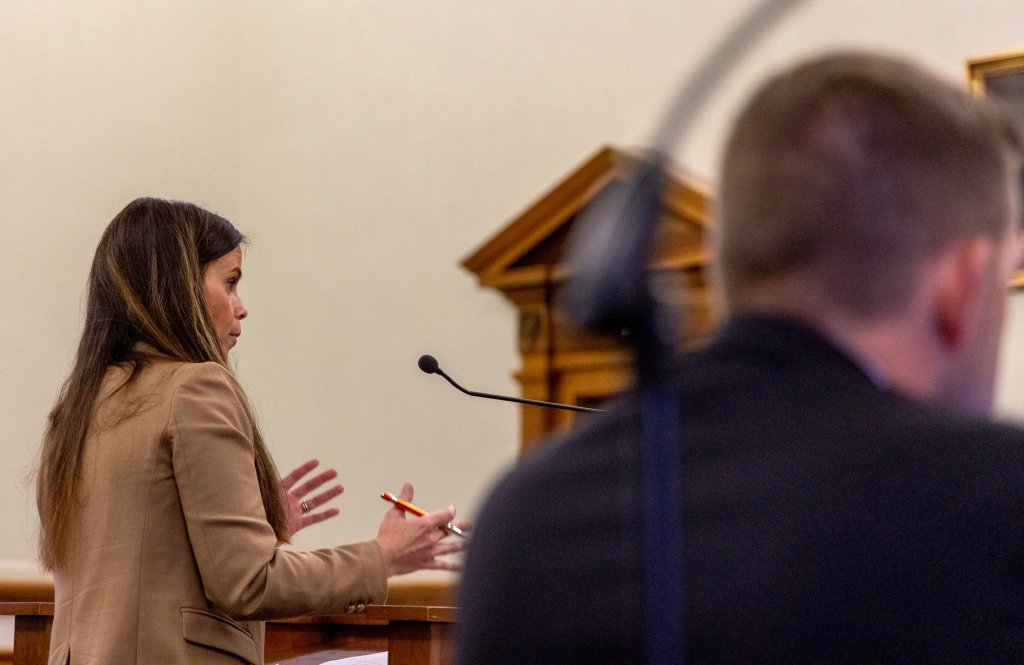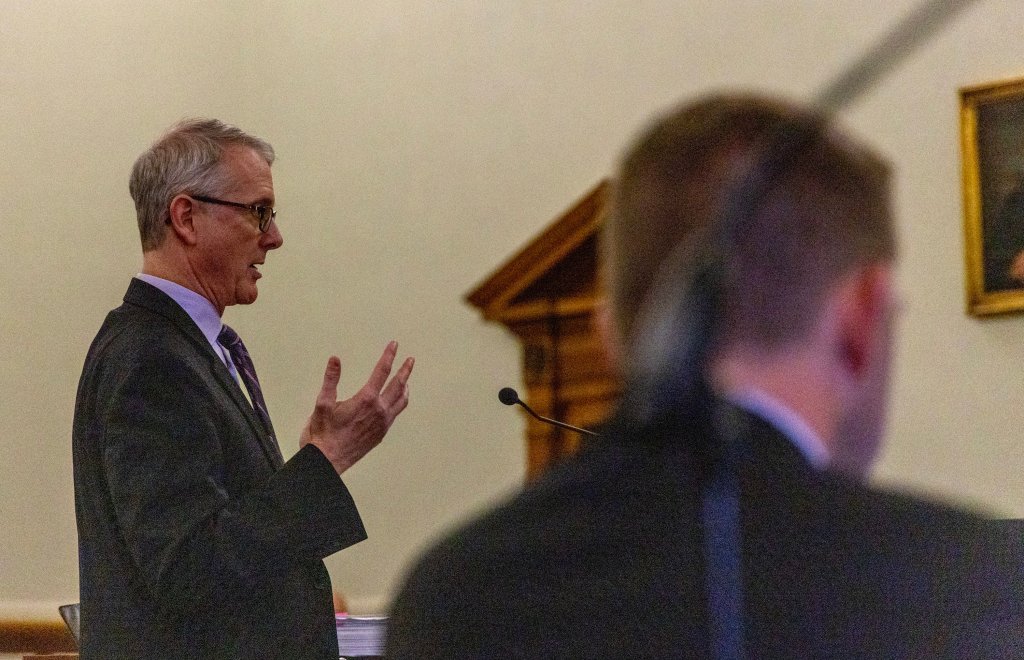
ROCKLAND — A Knox County jury will return to court Wednesday after it could not decide whether a Louisiana man was responsible for a toddler’s death.
Aziayh Scott, 24, was on trial in Knox County Superior Court all last week. Prosecutors argued he assaulted 22-month-old Quayshawn Wilson on May 29, 2024, hours before the toddler’s mother realized that evening the child was unresponsive.
“We do not know why the defendant assaulted Quayshawn,” Assistant Attorney General Jennifer Ackerman said during closing arguments. “We do not know if it was kick or a punch … And we are not required to prove why.”
Jurors deliberated for nearly four hours on Monday.
Scott pleaded not guilty to the charge last November and has been out on bail, his attorney said, living in Rockland and working for a local restaurant.
Several people tried to save Quayshawn on the day he died with CPR and two-finger chest compressions, they testified, including a woman with a background in health care who was on the scene before emergency responders.
Quayshawn was pronounced dead at a hospital that night. An autopsy later revealed he died from a torn liver and injuries to his right kidney, which resulted in internal bleeding.
Scott told police from the start that he believed a bruise on Quayshawn’s stomach was from CPR, a detective testified. Scott’s attorneys made this a central part of their defense at trial, and they questioned every person who performed CPR on Quayshawn about whether they were qualified to do chest compressions on children.
Experts for the state and defense testified on Thursday that it’s unlikely CPR caused Quayshawn’s liver injury, which was the child’s most serious wound.
The toddler’s body was the state’s “most powerful piece of evidence,” argued Assistant Attorney General Jennifer Ackerman, because she said the injuries were so severe that they could not have been caused accidentally.
Scott was the only person with Quayshawn that afternoon while the boy’s mother was at work.
CHILD’S MOTHER DID NOT TESTIFY
Quayshawn arrived in Maine a day before his death, Ackerman told the jury. His mother, Shaneka Washington, was a traveling nursing assistant and moved from Louisiana to work. She brought Scott with them.
Ackerman played a couple videos of Quayshawn from that day, which police seized from Washington’s phone, showing the boy exploring his new neighborhood in Owls Head and playing with toys.
Washington was not called to testify and wrote the court a letter in March, according to reporting from the Midcoast Villager, in which she disagreed with the state’s case.

Washington sat with Scott’s family in the courtroom Monday morning. She cried out as Ackerman described Quayshawn to the jury, then left the courtroom, followed by Scott’s mother and a court marshal.
A detective testified last week that Washington stopped cooperating with investigators after initial interviews, which had included a walk-through of the couple’s apartment the day after Quayshawn’s death and a search of her phone and car.
“Ladies and gentlemen, that speaks volumes, right there,” Scott’s attorney Christopher MacLean said during closing arguments Monday.
LOOKING FOR INCONSISTENCIES
MacLean said his client’s story to police has never changed, and detectives could not find video evidence that contradicted his account. Detectives said none of the surveillance camera footage they obtained from a playground and a carwash that Scott had visited was viable.
MacLean and Ackerman disagreed on the significance of an upstairs neighbor who told police she saw Scott carrying Quayshawn to the car the afternoon of the child’s death, and that Quayshawn had appeared “really knocked out.” Her story seemed to contradict what Scott told police, that he and Quayshawn walked out of the apartment together.
MacLean said it was unlikely the neighbor saw Scott’s entire walk from where she was sitting on her deck, and that she likely had only seen when Scott picked up Quayshawn to put him in his car seat.

Both sides acknowledged the case against Scott is circumstantial.
MacLean said that alone should exonerate his client; several detectives spent more than a week investigating Quayshawn’s death, he pointed out, and prosecutors still can’t say how exactly they believe Scott assaulted the toddler.
“They want you to assume or speculate on what happened,” MacLean told the jury. “They don’t have any idea.”
Ackerman said this is typical for child deaths, which she added often happen behind closed doors, by people close to the children.
“Cases involving children are unique,” Ackerman argued. “Because of those limitations, we must rely on circumstantial evidence.”
If convicted, Scott could face up to 30 years in prison.
